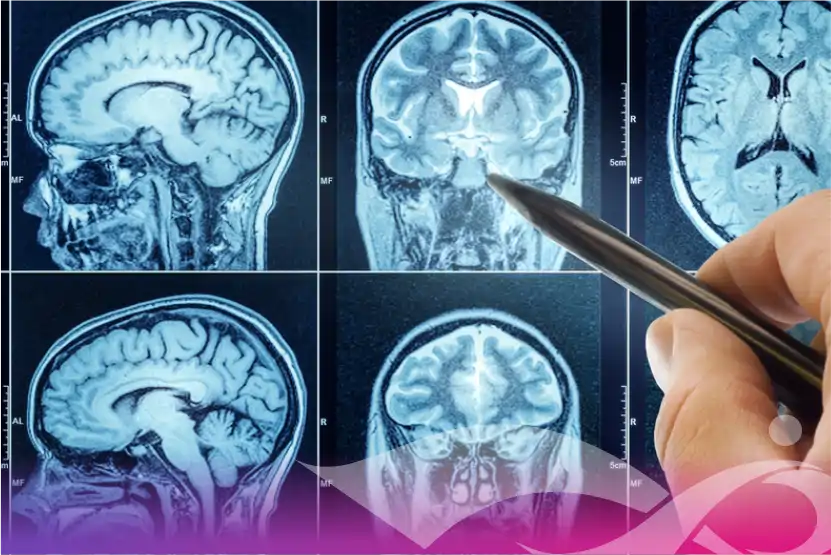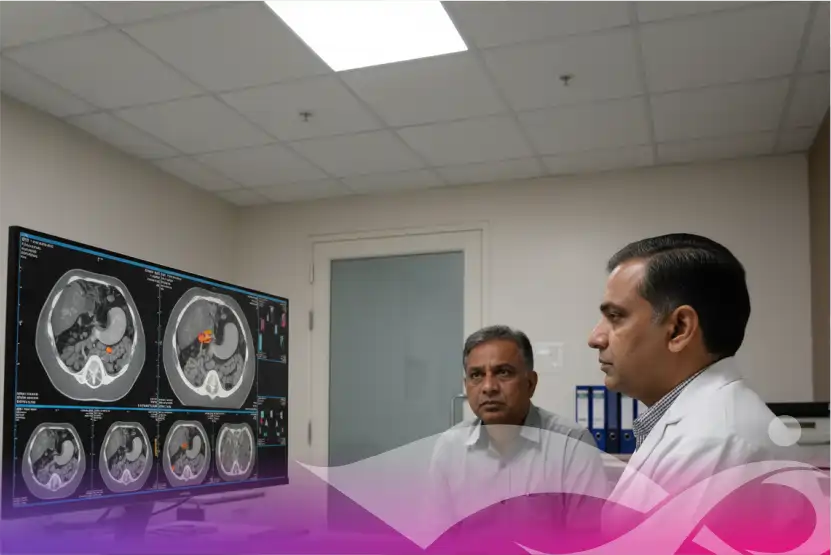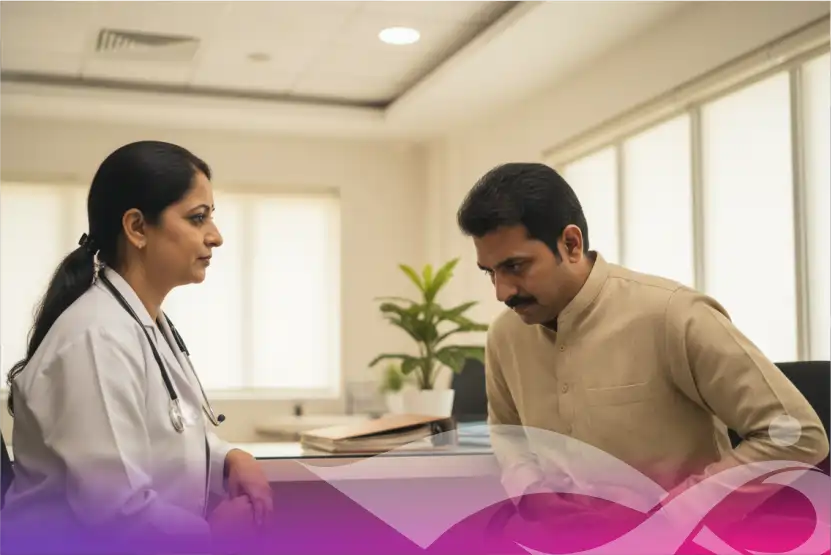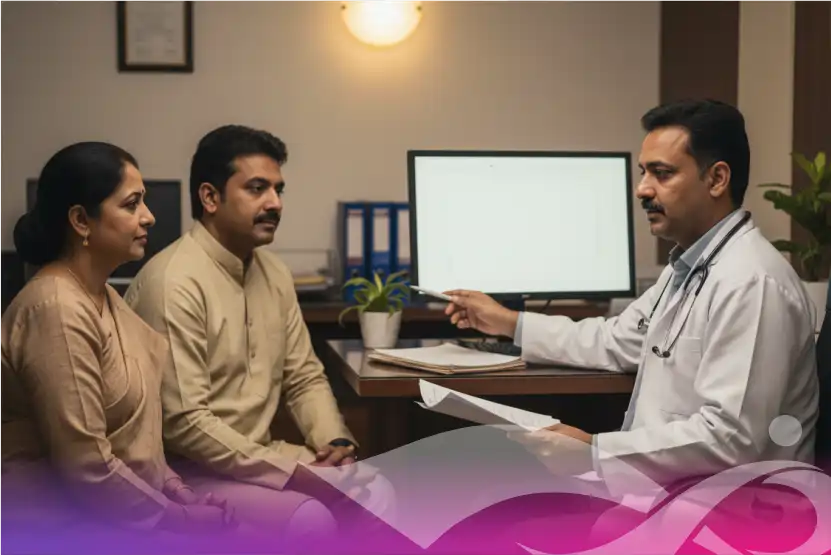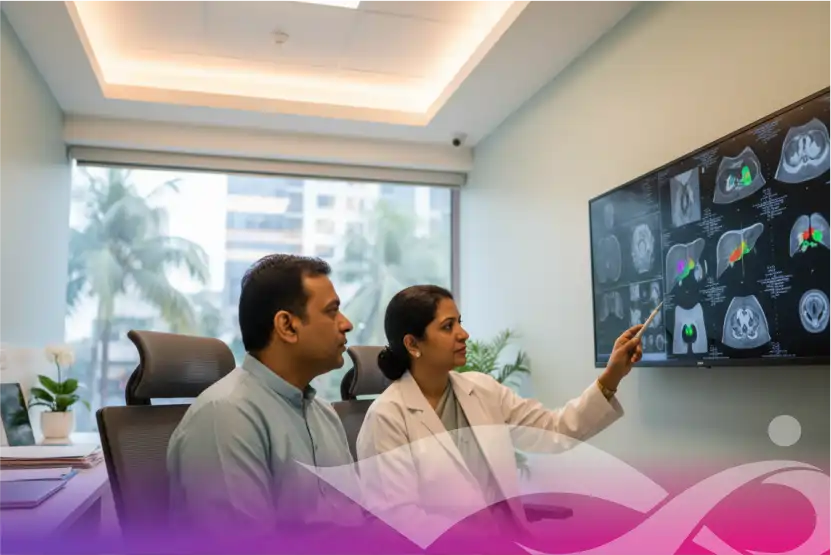The brain, which controls our bodies, sends out different signals to tell us how we're doing. These signals can show up in different ways depending on the size, location, and growth rate of the brain tumour. Understanding the brain tumor types and symptoms is crucial for early recognition and intervention. Our dedicated neuro-oncology team at the International Oncology Cancer Institute (IOCI) is very good at figuring out what these diseases are and how to treat them.
Understanding Brain Tumors: Types & Origins
Brain tumors can be broadly classified into two main categories: primary brain tumors, which originate in the brain tissue itself, and secondary (metastatic) brain tumors. There are different kinds of cells that can cause primary brain tumours, and they are grouped as follows:
Gliomas, which come from glial cells that support and feed neurons, are the most common type of primary brain tumour. Astrocytomas, oligodendrogliomas, and ependymomas are all types of gliomas. Glioblastoma is the most aggressive type of glioma. They can act in many different ways, from slowly growing to being very aggressive.
- Meningiomas: These cancers come from the membranes that cover the brain and spinal cord. Most meningiomas are not cancerous and grow slowly, but if they get big enough to press on brain tissue, they can still cause big problems.
- Pituitary Adenomas: These tumours, which are usually not cancerous, grow in the pituitary gland, which is a small gland at the base of the brain. As previously discussed in pituitary tumor symptoms and diagnosis, these tumours can make too many hormones or push on nearby structures to cause symptoms.
- Medulloblastomas: These are aggressive, fast-growing tumours that start in the cerebellum, which is the back part of the brain, and mostly affect kids.
The symptoms of a brain tumour depend a lot on where in the brain it is located. They can be very different from one tumour to the next. As the tumour grows, it may directly damage the brain tissue it occupies or compresses, or it may raise the pressure inside the skull.
These general symptoms often mean that the pressure inside the skull is too high:
- Headaches: Headaches from brain tumours are common, but they can be very bad, last a long time, and get worse in the morning or when you do something. They could also make you feel sick and throw up.
- Seizures: If an adult has seizures for the first time, it's a very serious warning sign that needs to be looked into right away. Seizures can happen in many ways, from short periods of staring to full-body convulsions.
- Nausea and vomiting, especially if they happen often and aren't caused by other illnesses like the stomach flu or food poisoning.
- Problems with vision: Pressure on the optic nerves or other visual pathways can cause blurred vision, double vision, or loss of peripheral vision. pituitary tumor symptoms and diagnosis.
Certain symptoms show up when the tumour affects certain parts of the brain:
- Changes in mood, behaviour, or personality: Tumours in the frontal lobe can make you forget things, make you irritable, or make you not care.
- Weakness or numbness: Tumours that affect motor or sensory pathways can make one side of the body weak, numb, or paralyzed.
- Aphasia: Tumours in language centres can make it hard to speak or understand language.
- Problems with balance and coordination: Cerebellar tumours can make you feel dizzy, unsteady, or have trouble with small movements.
- Hearing loss: Tumours near the auditory nerve can change how well you hear.
Given the potential severity of these symptoms, early detection saves lives in cancer, and this holds particularly true for brain tumors. Even though brain tumours aren't usually looked for in the general population, it's very important to find neurological symptoms that don't go away or get worse and get medical help right away. The first step in diagnosing a neurological condition is usually a neurological exam. After that, imaging tests like MRIs and CT scans are done, and sometimes a biopsy is done as well. Our multidisciplinary team at IOCI includes neuro-oncologists, neurosurgeons, radiation oncologists, and pathologists who work together to make sure that patients with brain tumours get the best care possible. They do this by making sure that each patient gets a full diagnosis and a treatment plan that is tailored to their needs.
Consult us at any of our locations—across IOCI Noida, Greater Noida, Mumbai, Indore, Aurangabad, Agartala, Saharanpur, Kanpur and Jodhpur.






